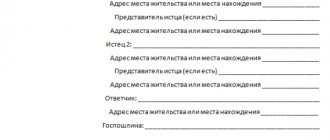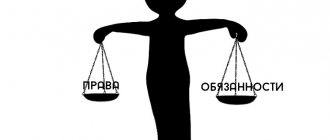Today, a huge percentage of real estate transactions involve donations. Of course, this solution is most beneficial for transferring property between relatives. Sometimes the older generation prefers a gift agreement to a will, wanting to distribute real estate in advance. The gift agreement has its own nuances, which are recommended to be clarified before making the transaction.
In our article we will talk about what exactly a deed of gift is and talk about such nuances as: the validity period of the deed of gift, the statute of limitations, the specifics of drawing up a deed of gift for an apartment, etc. Remember that in order to complete a successful transaction, it is necessary to take into account legal subtleties , which we will help you figure out right now.
Is a gift agreement subject to state registration?
From March 1, 2013, state registration of the gift agreement (hereinafter referred to as DD) was cancelled. Now it is necessary to register the transfer of ownership from the donor to the donee, but the deadline is not established by law. Legally, before registration, the gift belongs to the donor.
To register rights in the Unified State Register of Real Estate, you can contact Rosreestr or the MFC if real estate was donated:
- Apartment;
- Share in ownership;
- House;
- Land plot;
- Unfinished construction projects;
- Buildings, structures.
According to Art. 130 of the Civil Code of the Russian Federation, real estate includes property that cannot be moved without disproportionate damage. If you donate a car or other vehicle, money, or household appliances, you do not need to contact Rosreestr. The recipient can immediately take the equipment or banknotes for himself, and register the car with the traffic police within 10 calendar days after signing the deed of gift.
Form of gift agreement
According to Art. 574 of the Civil Code of the Russian Federation, the donation of real estate is always formalized in writing, and in the future the agreement is transferred to the registrar for re-registration of ownership of the donee.
Important! In some cases, the DD must be certified by a notary: for example, if a share in an apartment is donated, the property of a minor is alienated, or a representative is involved in the transaction by power of attorney. The registrar will not accept documents without a notary's signature.
What is the validity period?
Once the contract is drawn up, and both parties confirm their consent to the transaction, it is considered completed. When donating real estate, the agreement is almost immediately registered in Rosreestr. The validity period of the deed of gift after registration is unlimited. That is, as soon as the transaction is completed, the recipient takes ownership legally.
A deed of gift is one of those types of transactions that, according to the Civil Code, are irreversible. However, this does not mean that it cannot be cancelled. It is possible to challenge a transaction in court if the statute of limitations has not expired. In addition, the deed of gift itself may indicate the time period during which the transaction will be completed.
Specified by the donor
The validity period of the gift deed for the apartment can be specified in the gift agreement. This is used in cases where the owner (donor) wants to live in it until a certain point. This can be done for another purpose, because everything will depend solely on the will of the donor. However, such a period on average does not exceed one year.
If the donor changes his decision, then it is possible to cancel the transaction . Since the stated date has not arrived when the transaction comes into force, that is, the apartment will be transferred to another person, it can be canceled. At such a stage, until the specified period, it will not be considered perfect.
Validity period without registration
When donating real estate, such transactions are subject to registration. However, a gift agreement can be drawn up at home, without the participation of a notary. A deed of gift is drawn up between two parties (donor and donee), and the donee is given an average period of up to a year for its final registration in Rosreestr.
The contract may specify a permitted period of up to three years, but in no case should the registration procedure be delayed. If you are afraid that you will not be able to meet the deadline, then it is better to make a written promise to commit an act of donation of this or that property. You can have this promise certified by a notary for peace of mind for both parties.
Statute of limitations
Challenging a deed of gift in court is quite a difficult matter, because you will need to prove the nullity of the transaction in order to cancel it. The period given to the plaintiff to challenge the transaction is one year. However, this does not mean that in the event of a later discovery of the insolvency of the transaction, it cannot be challenged. The limitation period may be extended at the request of the plaintiff and if the plaintiff is not one of the parties to the contract.
Warning
Many legal proceedings related to deeds of gift are considered after a long period of time, which can be up to four years.
For example, if a person who is not one of the parties to the agreement is challenging the transaction, then the period is counted exactly from the moment when the above-mentioned person learned about the fact of the donation, which violated the rights of one of the parties. Share:
Features of state registration of a gift agreement
Immediately after signing the DD, it is recommended to register the rights to real estate in the Unified State Register of Real Estate. This will allow you to avoid many unpleasant situations regarding the possible challenge of the deed of gift or the presentation of rights to property by third parties.
Below we will look at what problems may arise with registration and how to solve them with minimal risks.
After the death of the donor
If a deed of gift is formalized, but the donor died before submitting documents to Rosreestr, the donated property is included in the inheritance estate. To submit documents, the personal presence of both parties is required, and the donor, for obvious reasons, will not be able to come. But there is a way out - to achieve recognition of property rights in court.
Everything changes if, instead of a regular DD, a promise of gift agreement is drawn up. According to Art. 581 of the Civil Code of the Russian Federation, the obligations of the donor to the donee are transferred to the heirs. They must transfer the property specified in the document in full.
By court decision
If the donee has difficulties registering the donated property in his name, he has the right to appeal to the district court at the location of the property. The claims must indicate the recognition of the contract as concluded with the subsequent registration of ownership.
Most often, a court decision is required when a transaction is contested by third parties, or when the heirs refuse to fulfill the donor’s obligations under the promise of a gift agreement.
Recently, the number of transactions related to the gift of real estate has increased. Although the number of such transactions is comparatively lower than purchase and sale transactions, the share of donations is becoming increasingly noticeable. To some extent, this is a sign of the increased welfare of the population.
Donation, as a form of property disposal, is a special type of transaction, the distinctive feature of this type is absolute gratuitousness. The legislator has provided as a special, immutable condition for such transactions - the absence in the gift agreement of counterclaims (conditions) of the donor to the donee. If there is a counter-obligation in the contract for the donee to transfer the thing to the donor or grant a right, the contract is not recognized as a gift, the transaction is qualified as void (Clause 1 of Article 572 of the Civil Code of the Russian Federation). In this regard, this type of agreement presents a certain difficulty not only for citizens inexperienced in legal matters, but also for a certain category of lawyers. Since the gift of property is common between close people (relatives) and, as a rule, is selective in nature, the donor expects a grateful response from the “chosen one.” This explains the attempts of donors to somehow predict (determine) their relationship with the future owner in the text of the contract. Even the notarial form of execution of such agreements is not an absolute guarantee against possible violations of the gratuitousness conditions. In particular, the text of the contract includes conditions based not only on the will of the parties, but also directly provided for by housing and civil legislation (the right of residence of family members of the owner in residential premises); such a “condition” does not lead to the nullity of the transaction, since it is stipulated by law . In addition, there are a number of other conditions permitted by law and which do not affect the principle of gratuitousness. Let us consider what these conditions are using specific examples. To begin with, you should dwell on the features of the form and content of the gift agreement. Parties: donor and recipient. Despite the fact that the Civil Code of the Russian Federation provides broad powers to the parties to the gift agreement, at the same time it contains some restrictions. When deciding who has the right to be a party to a gift agreement, it is necessary to take into account the provisions of Art. 575 of the Civil Code of the Russian Federation. Donation of real estate is not allowed in the following cases: 1) on behalf of minors and citizens recognized as incompetent, by their legal representatives; 2) in relations between commercial organizations; 3) employees of educational organizations, medical organizations, organizations providing social services, and similar organizations, including organizations for orphans and children without parental care, citizens receiving treatment, maintenance or upbringing there, spouses and relatives these citizens; 4) persons holding government positions in the Russian Federation, government positions in constituent entities of the Russian Federation, municipal positions, civil servants, municipal employees, employees of the Bank of Russia in connection with their official position or in connection with the performance of their official duties. These prohibitions are actively used in judicial practice. However, due to the fact that the form of the gift agreement does not imply information about the official affiliation of the donee individuals, it is very problematic to establish the fact of the inadmissibility of a particular transaction at the stage of legal examination of the agreement. Essential terms of the real estate donation agreement. Civil legislation defines the basic requirements, compliance with which gives grounds to recognize a real estate alienation agreement as concluded. Such an agreement is considered concluded if an agreement is reached between the parties in the required form on all essential terms and the procedure for its state registration is completed (clause 1 of Article 432, clause 3 of Article 433 and clause 3 of Article 574 of the Civil Code of the Russian Federation). The donation of real estate allows for both a simple written and notarial form of execution of the agreement. Along with the condition on the subject of the agreement, the condition on the gratuitous transfer of property is essential for the gift agreement. This condition must be stated in the text of the contract. Essential for a gift is the presence of two important components: the will of the donor and the consent of the donee or, in accordance with Art. 33 of the Civil Code of the Russian Federation, the legal representative of the minor or the guardian accept the gift. At the same time, accepting property as a gift does not require drawing up an act of acceptance and transfer; references in the text of the agreement to Art. 556 of the Civil Code of the Russian Federation, since obligations related to the quality and completeness of the transferred property are inherent in compensated transactions. To accept the “gift,” a symbolic transfer of keys, documents, the text of the agreement itself, etc. is sufficient. Claims to the quality of the donated property do not give rise to the responsibility of the donor and are regarded as ingratitude. Acceptance of donated real estate does not require the consent of the spouse, since according to paragraph 2 of Art. 256 Civil Code of the Russian Federation, Art. 36 of the Family Code of the Russian Federation, such property is not the joint property of the spouses. At the same time, if property is donated by one of the spouses, the legal regime of such property should be clarified. Even if the property is registered as the property of one of the spouses, it will have the regime of common joint ownership if it was created or acquired through a compensated transaction during the marriage. In this case, the provisions of paragraph 2 of Art. 253 of the Civil Code of the Russian Federation, according to which the disposal of jointly owned property is carried out with the consent of all participants, which is assumed regardless of which of the participants makes the transaction to dispose of the property. It is necessary to distinguish a real estate donation agreement from agreements containing a promise to donate property in the future (preliminary agreements). The legislator applies a single term to these transactions, which have different legal consequences - “donation”. Real estate donation agreements (as opposed to preliminary agreements - “promises to donate”) are considered fulfilled from the moment of state registration; they cannot be canceled on the grounds contained in Article 577 of the Civil Code of the Russian Federation. The inclusion in the texts of real estate donation agreements of conditions containing the possibility of “refusing to fulfill the agreement in the event of a significant change in property, marital status, or health status” makes the transaction void on the grounds provided for in Art. 168 Civil Code of the Russian Federation. At the same time, in the author’s opinion, preliminary agreements (agreements of “promises to donate” real estate in the future) are subject to registration in the form of an encumbrance on real estate, while the conditions regarding the subject and gratuitousness of the transaction remain determining for this category of transactions (item 1) . clause 1. Article 8 of the Civil Code of the Russian Federation). Such transactions are encumbered by a promise; the donor has the right to terminate (cancel) unilaterally on grounds related to a change in family or property status, or to the behavior of the “potential donee” (Articles 577 and 578 of the Civil Code of the Russian Federation). In this case, the “failed donee” has no right to demand compensation for losses. As already mentioned, the unconditional gratuitousness of a gift excludes the possibility of including in the text of the contract conditions that can be regarded as “counter”, obliging the donee to respond, proportionate actions (Clause 1 of Article 572 of the Civil Code of the Russian Federation). Most often, a clause is included in the contract that assigns the donor the right to reside in the alienated residential premises. In a certain situation, such a condition may be based not on a counter, binding claim, but on a rule of law governing legal relations in the housing sector. So, if the donor and the donee are members of the same family, or the donee was moved into the premises as a family member, the donor remains to live in the donated apartment on the basis of Art. 292 of the Civil Code of the Russian Federation, as a member of the donee’s family. However, upon subsequent alienation of the object to another person who is not related to the resident, or upon donation to an outsider, the right to use the residential premises may be terminated. In this regard, we should not forget that a gift agreement cannot impose on the donee restrictions on his rights as an owner in relation to the transferred property (for example, a ban on alienation or other transactions). Therefore, the inclusion in the gift agreement of the condition “to preserve the lifelong residence of the donor” becomes an unacceptable counter-condition, since it limits the ability of the donee to dispose of the property during the lifetime of the former owner. Despite the unconditional gratuitousness of the gift, there are a number of conditions expressly provided for by law as permissible for the gift of real estate. The donor may include in the contract a condition for canceling the donation if the recipient’s handling of the donated property, which is of great non-property value to the donor, creates a threat of irretrievable loss. The cancellation of such a donation on grounds related to the threat of loss of property is carried out in court (clause 2 of Article 578 of the Civil Code of the Russian Federation). At the same time, the donor also has the right to file a claim for the return of the gift even in the case where this condition was not directly stipulated in the contract. Also, the donor may include in the contract a condition for the return of property if he survives the donee. In such situations, the notary has no right to include the property received by the donee (testator) under a condition in the inheritance mass. The heirs are obliged to return the preserved object in kind to the donor. In practice, the assumption contained in the law creates significant difficulties for copyright holders. Since the law does not contain a direct prohibition on the alienation of property donated under a condition, there is often nothing to return to the heirs. Therefore, if the return of property has become impossible as a result of purposeful actions (whether alienation of property by the donor or its destruction), including those associated with reluctance to return the property, the surviving donor has the right to file claims against the heirs for damages in court. Often, gift agreements include conditions for the cancellation of the consequences of the transaction and the return of property if the donee makes an attempt on his life, the life of one of his family members or close relatives, or intentionally causes bodily harm to the donor (Clause 1 of Article 578 of the Civil Code of the Russian Federation). Cancellation of a donation on such grounds is also possible only in court at the request of an interested party. Separately, we should dwell on cases where the gift agreement is a void transaction due to its sham. There are often cases when a gift agreement is drawn up by the owner of a share in the right to property to cover the purchase and sale. Thus, a potential seller does not want to cede property that is in common ownership to co-owners, although these persons have the right of first refusal to purchase a share. Either he does not want to waste time searching for co-owners whose whereabouts are unknown to him, or he knows that the co-owners do not intend to acquire his share, but may delay their response. Then the property is transferred, as it were, “under a gift agreement,” free of charge to the new owner, but money is still paid for it. This deal is clearly a sham. Such sham transactions, first of all, pose a real risk for the acquirer, since they contain the threat of subsequent loss of property. The fact that a new co-owner purchased property for money rarely remains a secret for the co-owners. As a result, interested parties, for example neighbors who have a pre-emptive right to purchase property, in accordance with paragraph 1 of Art. 181 of the Civil Code of the Russian Federation, within three years they can apply to the court with a demand to apply the consequences of the invalidity of a void transaction, and the limitation period begins from the day when the execution of this transaction began. The outcome of such a judicial review depends on the ability of the plaintiffs to prove that the “donor” and the “done” were actually bound by monetary obligations that give the transaction a compensated nature. In any case, the acquirer of a pretend “donation transaction” is guaranteed trouble. The execution of a gift transaction is similar to the execution of a purchase and sale agreement. The package of documents submitted to the Rosreestr body includes: - an application for state registration of the transfer of rights to a property, filled out at the reception and signed by the parties (in the event that a representative acts on behalf of the donor, the power of attorney must contain information about the subject of the gift and the donee – clause 5 of Article 576 of the Civil Code of the Russian Federation); - receipts for payment of the state duty and their copies (there can be three receipts, since the donor and donee pay separately - for the transaction in equal shares, the amount is 500 rubles on each side, respectively, for registration of the donee’s property rights 1000 rubles), total the amount of duty is 2000 rubles; — donation agreement in a quantity of at least two copies; — title documents for real estate (certificate of state registration of ownership, a document that is the basis for its occurrence (for example, a gift agreement, purchase and sale agreement, etc.)); — cadastral passport for the object, if the registration of the donor’s right with the Rosreestr authorities was not carried out; — other documents confirming the legal regime of the property and excluding the legal claims of third parties; It is up to the owner to decide whether to donate or sell owned property; regardless of the decision made, you should remember that the transaction must be carried out in accordance with the norms of current legislation, this is the key to your peace of mind, and often personal safety.
State registrar of the department Kovalev S.A. registration of transactions with real estate objects








